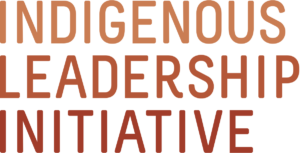Governance that Supports Land Management
Strong, independent systems of governance rooted in culture are a necessary condition for the sustainable management of Indigenous lands by Indigenous Nations. The Indigenous Leadership Initiative supports Nations as they move away from colonial models of governance and return to self-determination.

Deline:
The Sahtúgot’ine Dene people of Deline, Northwest Territories have crafted a ground-breaking approach to nationhood. In September 2016, they became the first self-governing community in the Northwest Territories and the first in Canada to include Indigenous and non-Indigenous residents. In 2016, the Great Bear Lake Watershed was designated as a World Biosphere Reserve. The Indigenous Leadership Initiatives supported Deline in these efforts.
UPCART:
In 2017, seven Indigenous Nations and groups announced a ground-breaking strategy for restoring caribou across 1.5 million square kilometres of Quebec, Labrador and Nunavik. Called the Ungava Peninsula Caribou Aboriginal Roundtable (UPCART), it is the first cooperative Indigenous agreement for wildlife management on this scale in Canada. The Indigenous Leadership Initiative helped convene the roundtable and continues to support and advise UPCART members.
Dene Nahjo:
A group of young, emerging Indigenous leaders in Denendeh (Land of the People) is working to deliver environmental and social justice for northern communities. With guidance from Elders, they encourage young people to engage in nation building and create long-term positive change in the North. ILI supports this program to promote the next generation of Indigenous government leaders.








